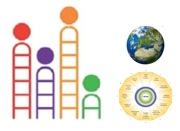"You're free range when I say you're free range

When a baby is small it would seem to be fairly obvious who is the Adult in charge, but one of the things that often happens in families of children with complex needs is that confusion sets in about this issue.
Children with complex needs are often more challenging to manage because they are developmentally younger. Their responses tend to be more intense and more difficult to make sense of. The level of supervision that is required is higher and goes on for longer and the adults are more prone to becoming exhausted.
All of these factors contribute to a very frequent disorientation of the adult. When the child is not easily settled by the common parental behaviours that would settle a typical child, the exasperated parent can move between becoming i) tougher, less tolerant and more authoritarian, and ii) softer, more laissez faire and generally more passive. Neither Authoritarian nor Passive are effective with complex children but exhausted parents or teachers will commonly find themselves offering one or both.
Fortunately, the 'direction of travel' as we say in I Matter is to increase the intensity of the firm supervision and boundaries AND the intensity of the love and nurture and compassion. Every complex child, however disagreeable and challenging in their overt behaviour, is a child who is struggling with a state of overwhelm in which they feel unsafe around the adult on whom they depend.
Of course, a child who does not trust adults is hard to care for, so the challenge is to find the right balance for this particular child of nurture and firmness, and the right sensitivity to their developmental as opposed to their chronolgical age. And then the challenges is to sustain that balance over time so that the respect and trusting relationship that is at the heart of a happier parent-child relationship can flower.
The thing I love about my work, is that it is never too late for that to happen, even if the relationship has gone very off track. It occurs however, if and only if, the adult is willing to learn to read the signs, learn the skills and be very very patient. Remembering that if the task is to help the child mature, one of the most important roles of the Adult is to be able to take a longer view.
So who is in charge in your home? Have you got the balance right?
If you would like to learn more about some of the starting points of the I Matter Framework, why not sign up for the free E-course Five Steps to Success with Complex Children
Children with complex needs are often more challenging to manage because they are developmentally younger. Their responses tend to be more intense and more difficult to make sense of. The level of supervision that is required is higher and goes on for longer and the adults are more prone to becoming exhausted.
All of these factors contribute to a very frequent disorientation of the adult. When the child is not easily settled by the common parental behaviours that would settle a typical child, the exasperated parent can move between becoming i) tougher, less tolerant and more authoritarian, and ii) softer, more laissez faire and generally more passive. Neither Authoritarian nor Passive are effective with complex children but exhausted parents or teachers will commonly find themselves offering one or both.
Fortunately, the 'direction of travel' as we say in I Matter is to increase the intensity of the firm supervision and boundaries AND the intensity of the love and nurture and compassion. Every complex child, however disagreeable and challenging in their overt behaviour, is a child who is struggling with a state of overwhelm in which they feel unsafe around the adult on whom they depend.
Of course, a child who does not trust adults is hard to care for, so the challenge is to find the right balance for this particular child of nurture and firmness, and the right sensitivity to their developmental as opposed to their chronolgical age. And then the challenges is to sustain that balance over time so that the respect and trusting relationship that is at the heart of a happier parent-child relationship can flower.
The thing I love about my work, is that it is never too late for that to happen, even if the relationship has gone very off track. It occurs however, if and only if, the adult is willing to learn to read the signs, learn the skills and be very very patient. Remembering that if the task is to help the child mature, one of the most important roles of the Adult is to be able to take a longer view.
So who is in charge in your home? Have you got the balance right?
If you would like to learn more about some of the starting points of the I Matter Framework, why not sign up for the free E-course Five Steps to Success with Complex Children

Comments